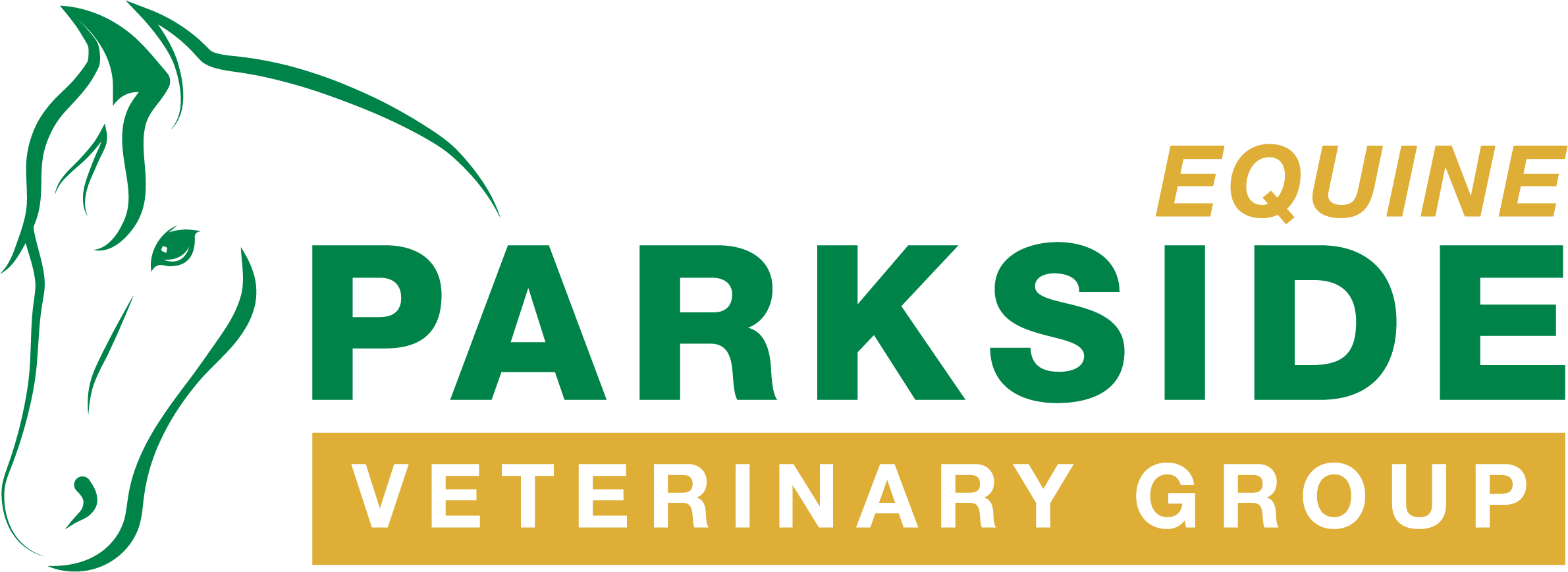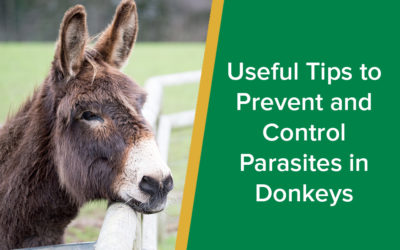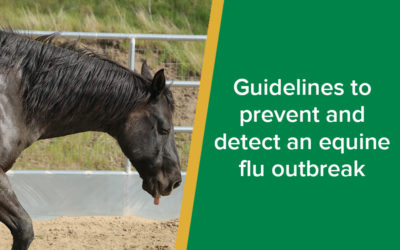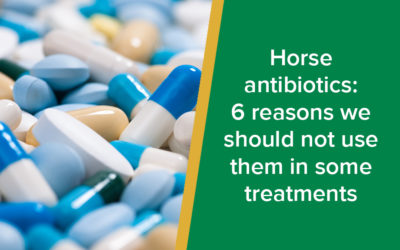Equine parasites require control in order to prevent irreversible damage to our horses. Eggs produced by adult worms in horses guts are passed out in the faeces to pasture where they develop in to larvae, these larvae climb up the grass stem and infect the horse. At low levels these parasites cause minimal problems however higher burdens can lead to colic, poor condition and can cause damage to the lining of the horses intestines.
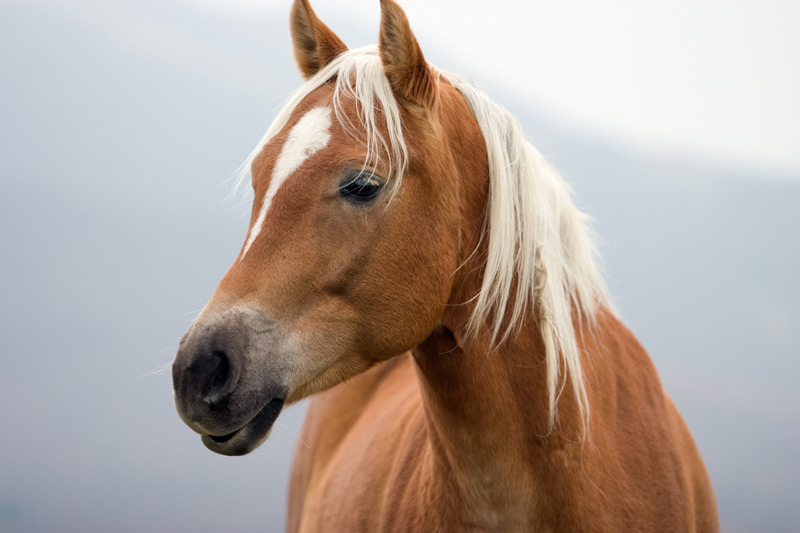
Types of internal equine parasites/worms.
The most common species of worms that affect horses include:
Large Redworms (Strongyles)
Large redworms are one of the most dangerous internal parasites. They eat through the lining of the gut wall and travel through the blood vessels of the gut causing significant bleeding and damage. They can cause rapid weight loss, diarrhoea and surgical colic. Severe cases of infection can lead to death.
Small Redworms (Cyathostomes)
Small redworms are the most common internal parasite in horses. The larvae hibernate in cysts within the gut wall during the winter and emerge in large numbers in the spring causing severe damage to the intestines during the process. They can cause weight loss, diarrhoea and colic with potentially fatal consequences particularly at the time of mass emergence.
Roundworms (Ascarids)
Adult roundworms can grow to 50cm in length and are particularly dangerous to foals and young horses (older horses develop immunity). The larvae migrate through the gut wall, to the liver and then the lungs. The larvae are coughed up and swallowed where they mature to egg laying adults within the gut. They can cause respiratory signs (seen as a cough and nasal discharge) as the larvae journey through the lungs, or they can cause gut signs such as weight loss, a poor-doer or pot-bellied appearance and diarrhoea. – Pinworms (Oxyuris) Pinworms can damage the bowel before laying their eggs around the outside of the anus causing intense itching and irritation. Persistent scratching will result in hair loss and open sores, around the tail head which can become infected.
Threadworms (Strongyloides)
Threadworms often remain dormant in adult horses but transfer to newborn foals via the mare’s milk. This leaves the foal weak and susceptible to diarrhoea and anaemia. The foal’s growth rate may also be affected. Foals should be wormed against threadworms as early as 4 weeks old and worming the mare during pregnancy will help reduce numbers transferring to the udder. Natural immunity usually develops by 6 months of age.
Tapeworms (Cestodes)
Tapeworms can grow to 8cm in length and a width of 1.5cm. They form into clusters at the junction between the small and large intestines where they can cause digestive disturbances, loss of condition, colic and fatal blockages. Horses become infected when they eat forage or grass contaminated with the infected forage mite.
Lungworms (Dictyocaulus arnfieldi)
Lungworms prevail in pastures shared with donkeys – the lungworm’s natural host. These worms cause persistent coughing in horses as respiratory problems develop.
Bots (Gastrophilus)
Bot flies are one of the most common irritants to horses during the summer grazing season. They lay sticky yellow eggs on the horse’s coat – these are then ingested as the horse grooms itself by licking. On entering the mouth the eggs hatch out into larvae, which migrate to the stomach.
Targeted Equine Parasite Control
Parasite control is about far more than just worming. Targeted worm control provides a tailor made approach designed by our vets, taking into account your individual horses needs. With resistance to wormers (where previously effective wormers no longer kill the worms) increasing far faster than new wormers are discovered it is essential that we reduce our reliance on these drugs.
How does it work?
Faecal Worm Egg Counts (FWEC) are taken three times a year (April, June and Sept/Oct). Our annual tailored worming programme costs just £47.50 per horse, this includes 3 worm egg counts, an autumn wormer (that covers tape and round worms) and free advice and reporting from our dedicated equine vets. (please note, additional wormers will be at an extra cost). We discuss the results with you and, if required, provide advice on, and supply the most appropriate wormer; last year 90% of the horses we tested didn’t need worming!
Simply call the Dundee surgery to order enough kits for each of your horses, send off the samples in our postage paid bags three times a year and we will take you through the rest.
Email reminders are provided and results are delivered in the same way to ensure that the whole process is quick, easy and provides your horse with the best possible programme.
If control measures are in place within a stable adult population horses will require FWEC to be carried out in April, June and Sept/Oct. Should a result over 200 eggs per gram (epg) be detected then appropriate dosing and repeat FWEC to ensure response will be required. These test do not identify tapeworm so we advise that horses are dosed at least in the autumn, possibly in the spring too if particularly at risk. There are blood and saliva tests available and we are more than happy to discuss the pros and cons on an individual basis.
Donkeys are Different!
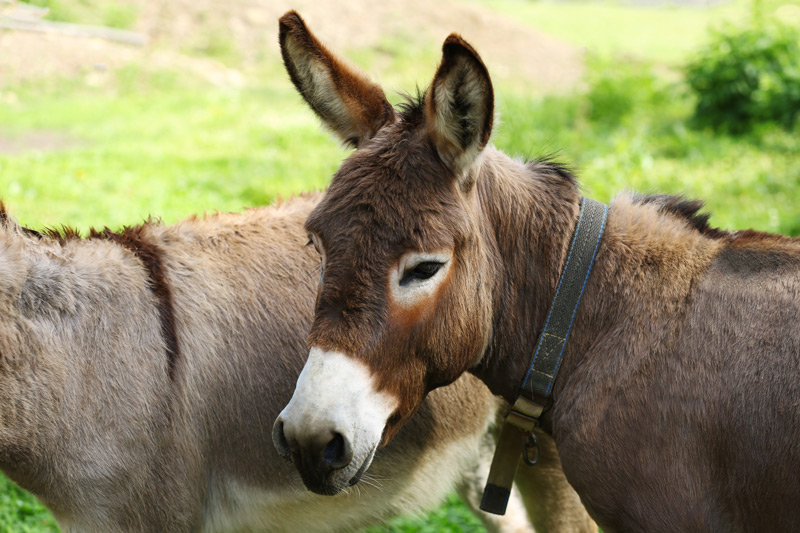
Though similar to horses in many ways, donkeys have many unique characteristics, and equine parasites are no exception.
Donkeys are affected by strongyles (Round worm) and tapeworm, just like horses, but there are two other significant parasites.
Lungworm
Donkeys, unlike horses, can carry the full lifecycle. Healthy donkeys rarely develop clinical signs but in horses infection can cause severe coughing. A ‘zero tolerance’ approach should be taken to Lungworm as once established eradication can be a lengthy process.
Fluke
Donkeys grazing wet, marshy paddocks are at risk of liver fluke, and may be at particular risk if grazed with other infected livestock (e.g. sheep or cattle).
For donkeys we advise three dung samples to be examined every year, with stronglyes evaluated in each and both Fluke and Lungworm to be assessed in one of these samples (spring or autumn). A new donkey should have a full screen on arrival.
Important Control Measures
If possible keep horses with the same grazing companions, not constantly changing groups
Poo-pick at least twice a week
Rest and rotate grazing and don’t overcrowd fields
Cross graze e.g. with sheep
Keep new horses separate until tested and treated accordingly
